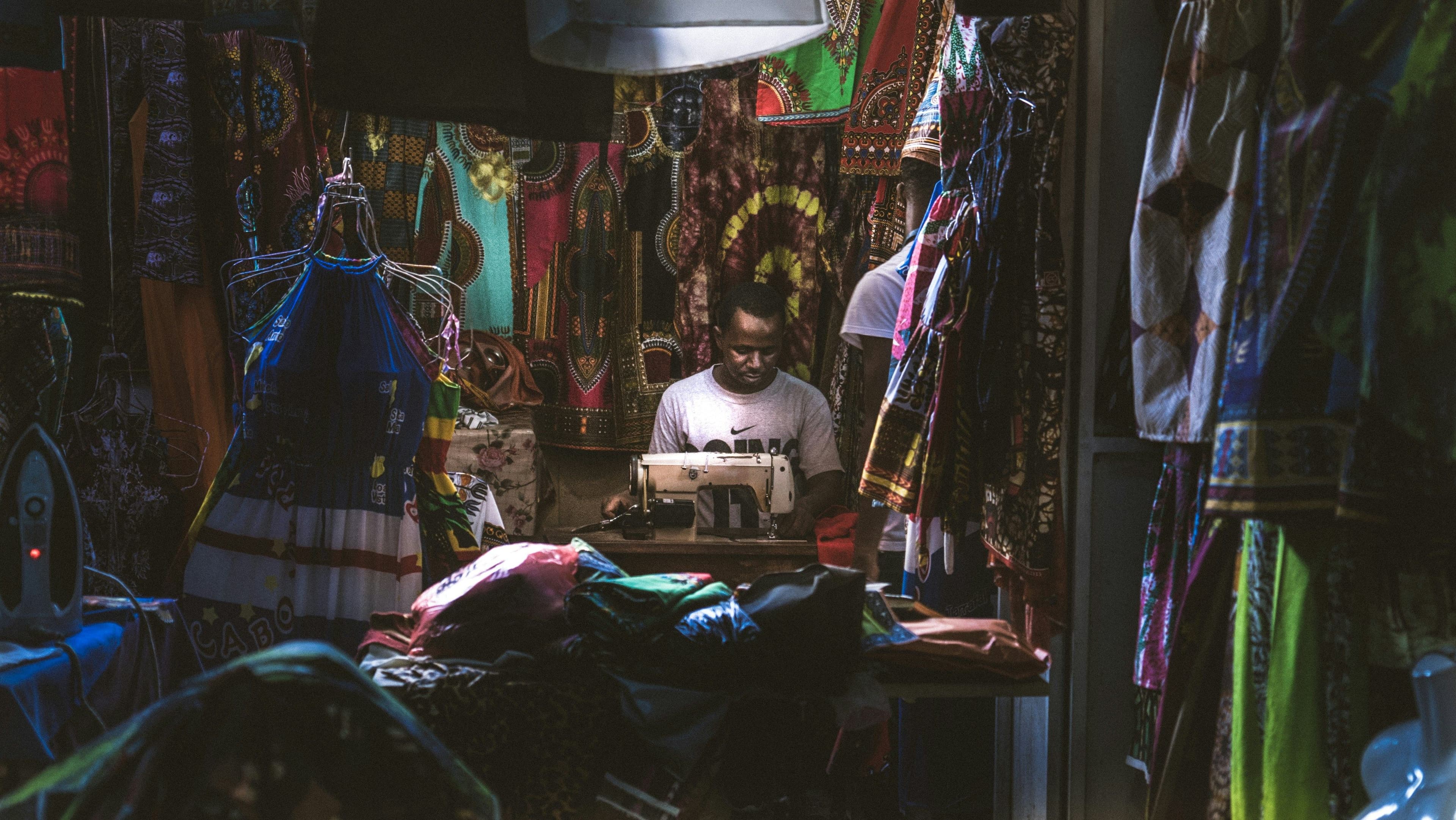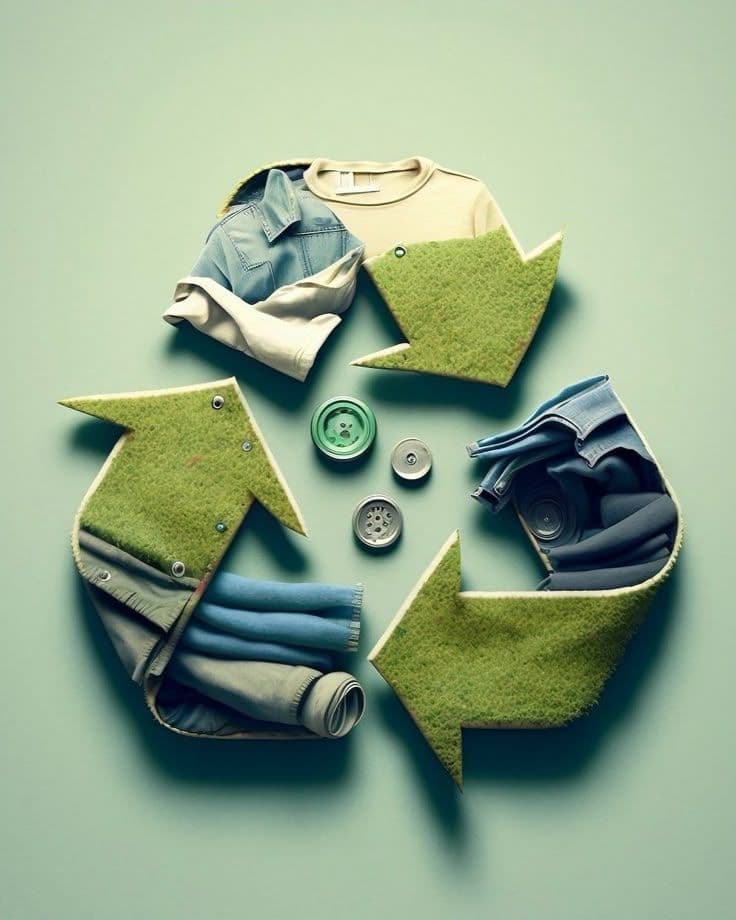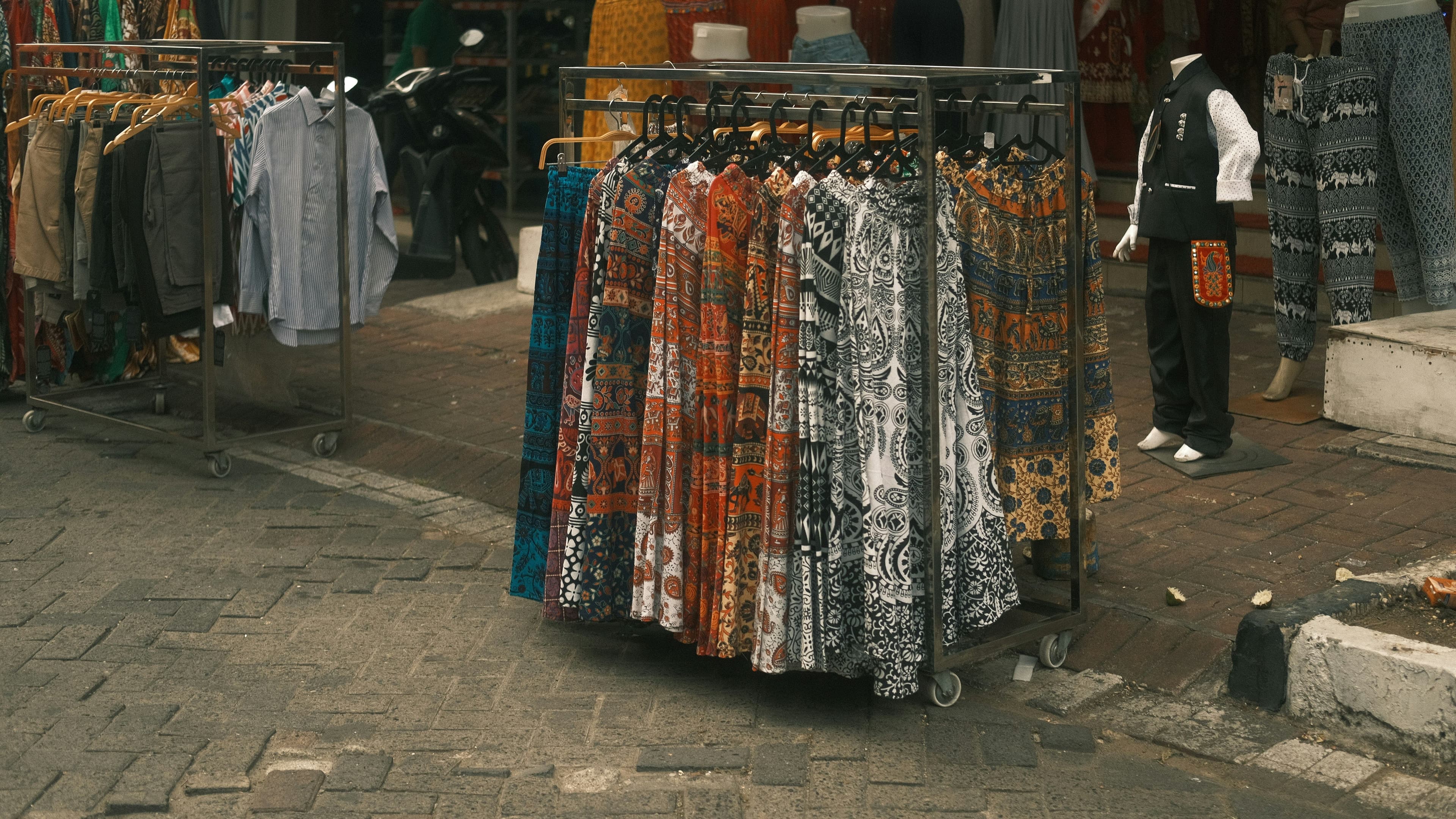Green Fashion 101
4 mins read
10 Sustainable Fashion Habits You Can Start Today
By Moyosoreoluwa Sanmi-alao
October 6, 2025
We highlight 10 simple everyday habits to make your fashion choices more sustainable, from rewearing and repairing to thrifting and supporting local artisans.

You can style sustainably without breaking the bank, and we'll show you how | Danique Godwin on Unsplash
We often associate creativity, trends, and personal expression with fashion. But behind the clothes hanging in our wardrobes lies the environmental cost of what we wear. Fashion is one of the most resource-heavy industries in the world, whether it is the water-intensive cotton farming to synthetic fabrics shedding microplastics.
However, we can make responsible fashion choices, and sustainability in fashion doesn’t always mean buying expensive, eco-friendly brands. In fact, some of the most significant changes begin with the simple choices we make every day. By rethinking how we buy, wear, and care for our clothes, we can all take steps toward a more sustainable future.
Here are 10 everyday habits that can help make your fashion choices kinder to the planet without compromising your style.
Buy Less, Choose Well
Instead of filling your wardrobe with pieces that fade quickly or go out of style, invest in fewer, high-quality items that will last. Timeless designs and durable fabrics give you more value in the long run while reducing waste.
The 30-Wear Test
This was launched by climate activist Livia Firth in 2015. This challenge encourages you to ask: “Will I wear this at least 30 times before buying anything new?” If the answer is no, it’s probably not worth the purchase. This simple habit helps curb impulse shopping and ensures you buy only what you’ll truly use.
Care for Your Clothes Properly
The way you care for your clothes makes a huge difference in how long they last. Wash less often to preserve fabrics, choose cold water to save energy and reduce microplastic shedding, and air-dry instead of tumble drying to keep garments looking newer for longer.

Source: Pinterest
Rewear and Restyle Your Clothes
Not every event calls for a new outfit. Rewear what you already own and get creative with styling. Layer pieces differently, mix accessories, or combine items in imaginative ways to make them feel fresh again.
Choose Natural and Recycled Fabrics
Natural options like cotton, hemp, and linen reduce dependence on petroleum-based synthetics, which take centuries to break down. Check the garment’s care or fabric label when shopping; it lists the materials used. Look out for words like 100% cotton, organic linen, or hemp blend. Certifications such as GOTS (Global Organic Textile Standard) or OEKO-TEX also indicate that fabrics meet environmental and safety standards. When synthetics are necessary, choose recycled options like recycled polyester or Econyl, which give existing materials a new life while cutting down on waste.
Support Sustainable Brands and Local Artisans
Choosing brands that prioritise ethical production, fair wages, and eco-friendly materials helps push the industry toward better practices. Beyond big labels, supporting local artisans preserves traditional crafts, strengthens communities, and reduces the environmental cost of mass production.
Swap, Borrow, or Rent
Refreshing your wardrobe doesn’t always mean buying something new. Organise clothing swaps with friends, borrow from someone you trust, or use rental platforms for one-off occasions. It’s a simple way to enjoy variety without creating more waste.
Shop Secondhand
Thrift stores, vintage shops, and resale platforms are rich sources of unique, affordable fashion. Buying secondhand extends a garment’s life, reduces demand for new production, and cuts down on textile waste.

Exploring local markets and thrift shops helps you find unique clothes while also preserving the environment| David Kristianto on Unsplash.
Repair Instead of Replacing
A missing button or a small tear doesn’t have to mean the end of your favourite piece. Simple fixes such as sewing on buttons, patching holes, or repairing zippers can restore your clothes and keep them in your wardrobe longer.
Be an Advocate
Many people overlook sustainable fashion simply because they don’t know much about it. You spark curiosity and inspire others to make small changes by talking about it, whether with friends, on social media, or in your community. Sharing what you learn not only spreads awareness but also builds a culture where sustainability becomes second nature.
Like Post
Comments
Joy
10/6/2025I love this tips
Ochuko
10/7/2025Great tips
Related Posts
MoreHow to Declutter Your Closet in Five Easy Steps
We’ve outlined five simple steps to declutter your wardrobe and embrace more sustainable fashion choices, helping you let go of clothes you no longer need.
Crocheting 101: Can We Outrun Fast Fashion Through Crocheting?
Learn how to make sustainable choices with crochet and discover whether crochet can truly outrun fast fashion.
Interview: Summer Chiamaka Anyanwu on Winning the Maiden Edition of Miss Green Fashion
Meet Summer Anyanwu, the Miss Green Fashion Queen, redefining sustainable fashion in Africa through purpose, leadership, and circular textile solutions.
Rita Idehai, on Waste, Work, and Driving Social Impact in Nigeria
Through Ecobarter and its fashion arm, Wrep, Rita Idehai is transforming plastic waste into fabric, and creating new pathways for women and communities to thrive.